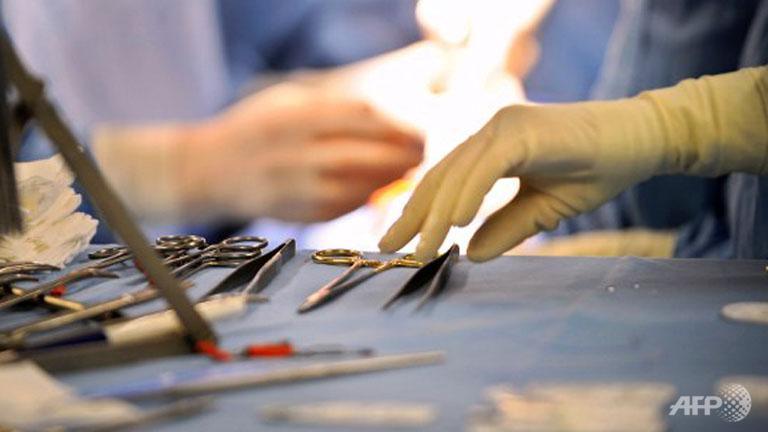By Gehad Abada, Aswat Masriya
When Amira Gamal* walked into the clinic in a murky street in Imbaba, she did not know what to expect or how far off pregnant she was. She arrived before the doctor and read the pamphlets on reproductive health and stages of pregnancy as she waited.
She was already uncomfortable with taking the pregnancy test without wearing a marriage ring and urged by her partner to use a different name in her lab application.
“Unmarried, Egyptian and pregnant… this is not a good place for a woman to be in, or for anyone to understand or accept,” Gamal, 26, told Aswat Masriya.
“I did not want anything to grow inside of me for a second longer, knowing that I do not have a chance to keep the baby. That killed me. I love children. Before figuring out how to go about the procedure, I felt like I needed to chop my stomach off in order to regain sanity and act normal.”
The Egyptian law bans abortion. Women who willingly choose an induced abortion could get a prison sentence ranging from six months to three years according to article 262 of the Penal Code.
A doctor who performs abortion can face three to 15 years in prison, which leaves many women with the choice of going to underground and overpriced physicians or resorting to indigenous methods of unsafe abortions.
Despite how harsh it is, the penalty usually applied when and if a woman dies from complications of abortion and the authorities find out that a doctor has performed the procedure, Dalia Abdel Hameed, Gender and Women’s Rights Officer at Egyptian Initiative for Personal Rights (EIPR), told Aswat Masriya.
Gamal said that if she lived in a different country, she would not have minded being a single mother, but she could not bear the idea of her child being illegal in Egypt.
“Fortunately, my partner was decent about the situation and he provided support, but his main concern was that I tell nobody about the matter.”
Gamal is considerably lucky compared to many others who faced her situation. There are younger and less privileged girls who do not have access to the same means or information.
“Making abortion illegal does not stop it from occurring; it just forces women to seek clandestine and unsafe procedures,” said a recent report on the status of sexual and reproductive health and rights by the EIPR.
There is a lack of accurate national data concerning abortion in Egypt. However, a study – published on the Population Reference Bureau website – of 1,300 Egyptian women by the Cairo Demographic Center showed that one-third had tried to terminate a pregnancy. The sample included both married and unmarried women.
Another small study in Upper Egypt found that 41 percent of women in one rural area had at least one abortion, and that 25 percent had more than one. Ninety-two percent of them did so without the help of a medical professional, instead seeking the help of a traditional midwife, a relative or a traditional practitioner, according to a 2008 report by the Population Reference Bureau.
Gamal, who was seven weeks pregnant, had a medical abortion in accordance with her doctor’s recommendation. She ordered the required pills from abroad as they are scarcely found in Egypt. She took a sick leave from her work before starting the medication.
“I felt excruciating pain. I started vomiting when the pills started to work, two hours after I took them, then I bled and it came out. I was extremely tired for two weeks after that,” she said, adding that she was worried about complications and that some remains might still be inside for the first week.
The hospitalization rate for the treatment of abortion-related complications is high in Egypt, about 15 hospitalizations per 1,000 women aged 15-44, according to apolicy brief on Abortion in the Middle East by the USAID’s Office of Population and Reproductive Health, Bureau for Global Health.
While Gamal had a painful experience, it is more difficult for women who undergo surgical operations. In a study conducted by Guttmatcher, a U.S. based institute for sexual and reproductive health in Egypt, one participant said, “It was very painful to go through the operation. Afterwards, the pain only got worse.”
Abdel Hameed told Aswat Masriya that “the secrecy puts a lot of pressure on the patient. She is going into general anesthesia and no one knows. Some of them fear that they could die without telling anyone of what they are going through.”
According to the Egyptian Ministry of Health, abortion was the cause of 1.9 percent of maternal health deaths in 2006.
“This is a very thorny topic; lots of feminist organizations choose not to deal with it so that they are not stigmatized for advocating for it. The social discourse around abortion is anti-feminist. The experience is supposed to be empowering because the woman makes a choice regarding her body, but the social discourse contributes to guilt trips.” Abdel Hameed added.
Abdel Hameed, who worked in focus groups with women of different social backgrounds and circumstances, said that women are very vulnerable in this situation. “One street girl said that the doctor had asked her for a sexual bribe in order to perform the abortion.”
“It is always poorer women who suffer the most because they cannot afford the medicine or surgery, which means great risks to their lives and their health,” Ahmed Awadalla, human rights and gender activist who provides counseling and support to rape survivors, said.
“Women who become pregnant because of rape always want to terminate the pregnancy as they already suffer the stigma of being raped and bearing a child would be a double stigma that they would have to live with forever,” he added.
But even for married and well off women who seek abortion, it is not an easy experience.
Amal Farid*, 40, said it was a very humiliating experience. “The doctor treated me as if I am a prostitute. I am a married woman and it was a joint decision with my husband not to have any more children. My husband was away when I first went to the doctor. He said that I could bring anyone and pretend that he is my husband. His treatment only changed after he saw my husband and identification cards that proved we were actually married.”
Farid said she went to four different doctors, “I was either met with complete rejection or humiliation. Abortion in Egypt is painful… you are viewed as a loose and immoral woman,” she said.
Gamal said the abortion ended her relationship with her partner.
“The last time we agreed to meet was at the doctor’s clinic to get an ultrasound to make sure it was all over. Once it was done, we had plans to talk later, but we never did. I believe we were not fitted to rise above all the trouble that was triggered by this experience.”
(Editing by Arwa Gaballa)
*The names of subjects have been changed upon their request.







Comments (10)
I personally know an Egyptian who arranged an illegal abortion for his sister. It occurred in the apartment of a poor family in a poor neighborhood. I would say that she is lucky that it worked out. It is also worth noting that Egypt is a religiously conservative country and yet, women in Egypt have none of the hang ups associated with having an abortion which exist in the USA.
A really sad story. Driving abortion underground is extremely dangerous. Leads to unscrupulous practitioners performing it in unhealthy environments. Subsequent post Procedure complications, from infections especially, have always been known to be very high. A Practitioner seeking for sexual favour in return is a disgrace to his profession. Hopefully the new Egyptian Government will rise up to the reality of this very unfortunate situation, in a country of so many talented people such as Egypt. Mustapha Tahir
02.06.2014.